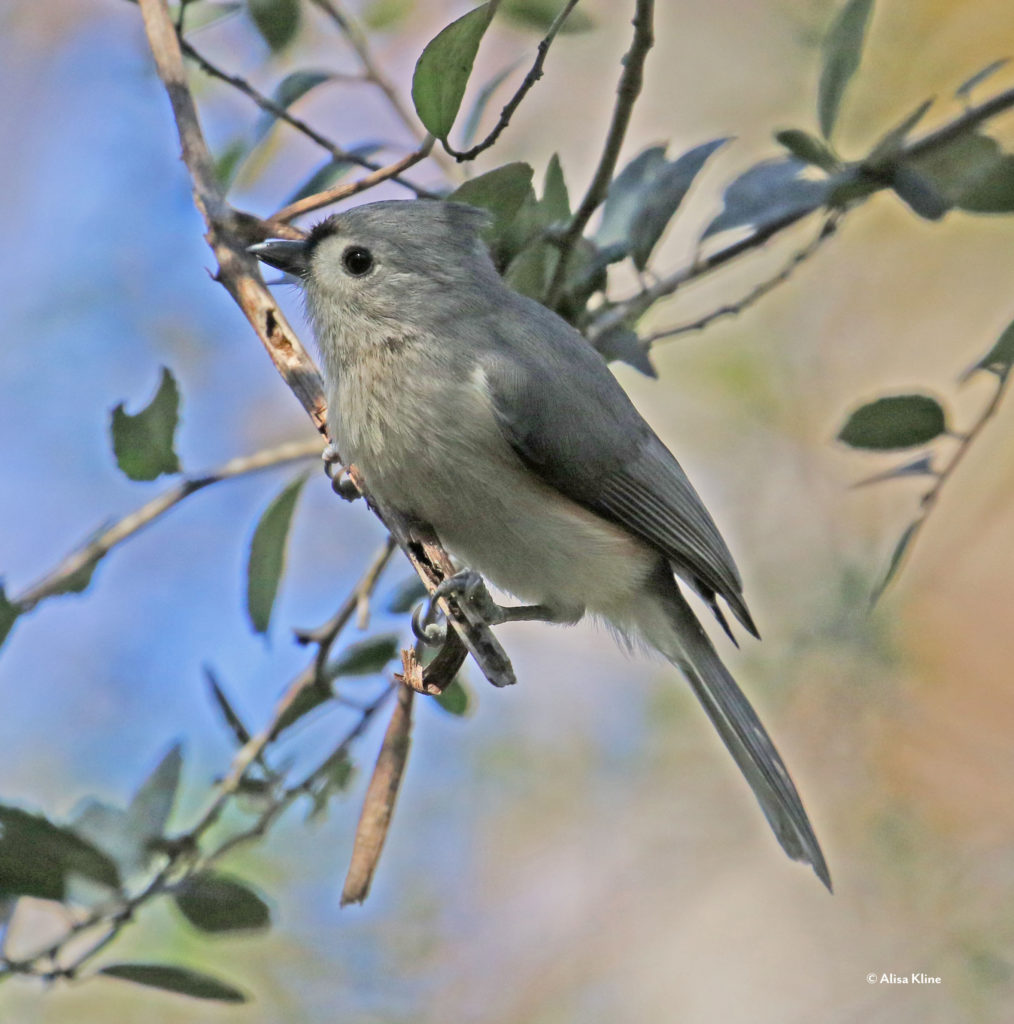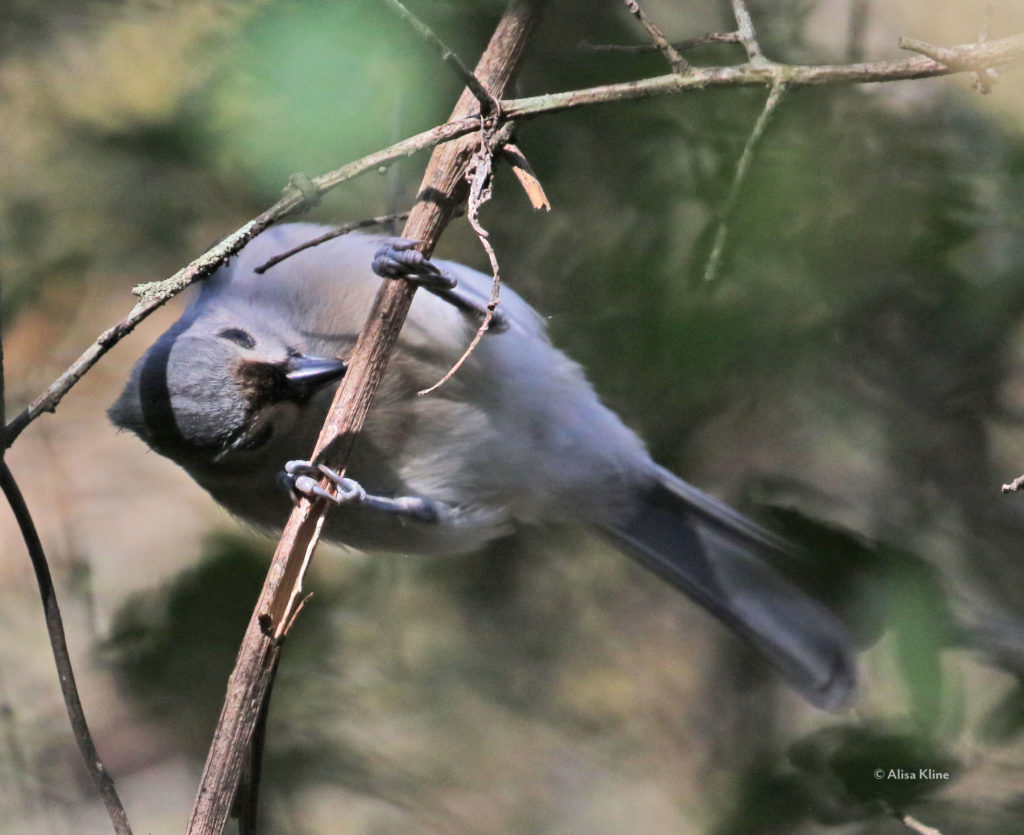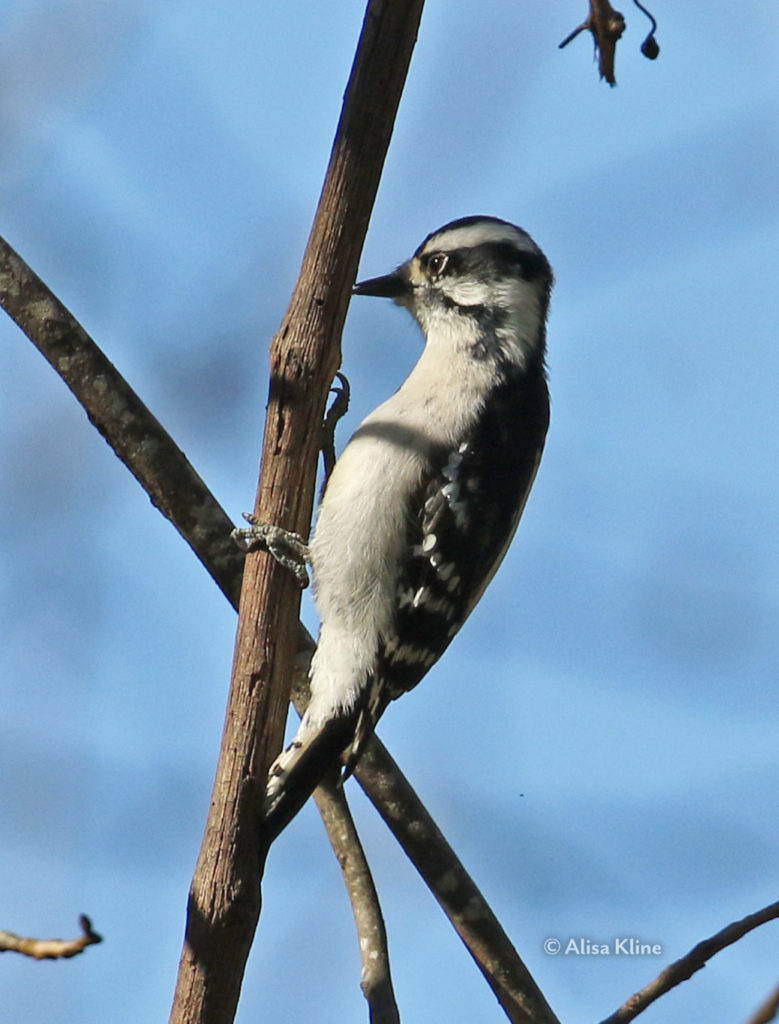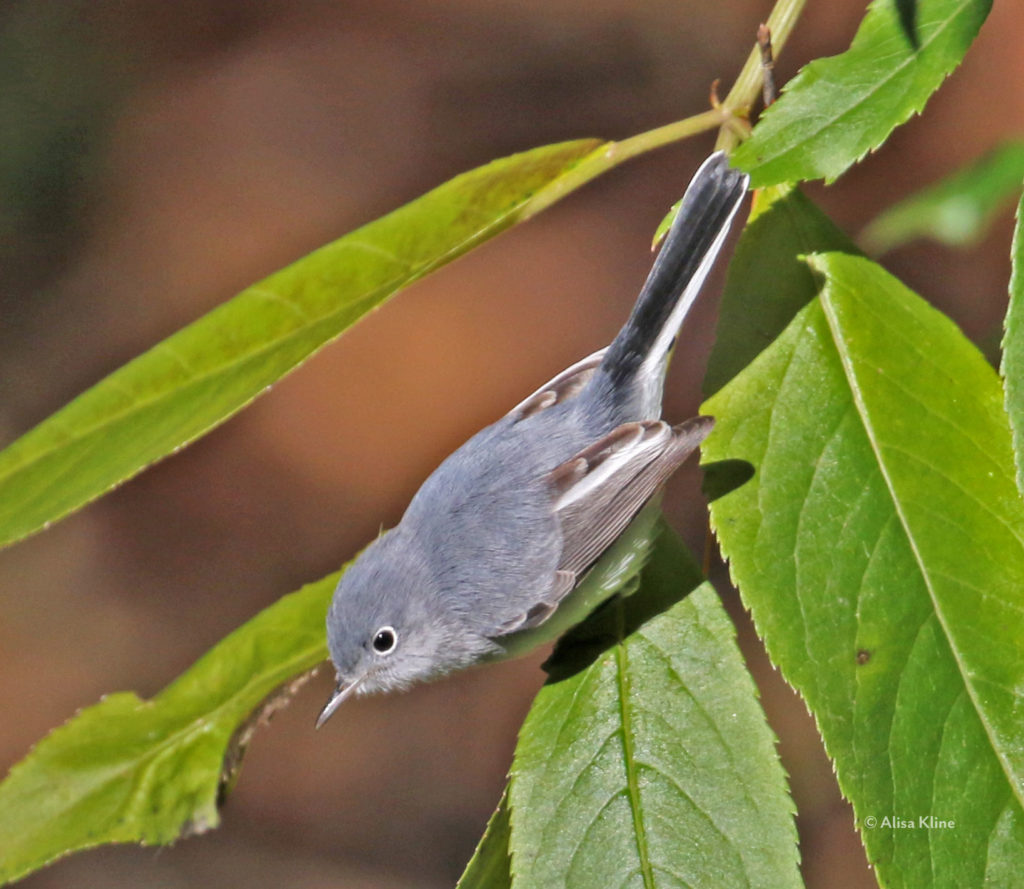Brainiacs

“Birds of a feather flock together” is an old saying based on an observable avian truth. When you see a flock of birds, they are almost always all the same species. Until I began to write this post, which is about birds not of a feather, I hadn’t thought much about why birds flock by species, and it turns out that there’s a lot of science about that, but if I go there, we will never get back to the incredibly cool phenomenon I want to write about:
The mixed winter flock.
Mixed winter flocks contain a Whitman’s sampler of small birds. In Houston mixed flocks, you are likely to run into chickadees, titmice, kinglets, warblers, gnat catchers, downy woodpeckers, some sparrows and a few wrens. Not all birds will join a mixed winter flock. Cardinals, for example, will sometimes gather together in winter (Brazos Bend State Park is a place you can see flocks of cardinals in the winter), but they will not join the flittering merriment of the mixed flock. Nor will blue jays. They have their own flocks. So do grackles.
The species you do find in a mixed winter flock will vary region by region, limited mostly by what species are in the area during the winter. But wherever a winter mixed flock forms, there will always be birds who lead the flock and, in the U.S., these birds are always chickadees or titmice.
That’s a tufted titmouse at the top of this post, and this fearsome fellow (or gal) is a Carolina Chickadee.

When I say that the flock is led by these birds, it’s not that they are seeking followers. It’s just that other birds will naturally follow along with the chickadees and titmice. These leader birds have two qualities that make other birds follow them. First, they are very vocal species. Chickadees and titmice form their own flocks that forage together and constantly call back and forth notifying others in the flock of their location and checking on the location of others. They invented social media. Everyone is in contact with everyone more or less constantly.
The way you know a mixed flock is approaching is from the noise. Every bird is cheeping and peeping, the bird equivalent of checking in. I’m here. I’m here. I’m here. Chickadees and titmice have complex communication systems, not just check-in calls, and other species probably can’t decode all the chatter, but it is well documented that many species (not just birds) learn to listen for the alarm calls of these two species. Chickadees and titmice issue alarm calls that are not loud and raucous like blue jays. They often issue a quiet seee call. We might miss it all together, but the whole area will fall silent if they issue it. It means danger. Right now and close. Chickadees have a call you have probably heard often and they are named for it. They say: chick-a-dee-dee-dee. They can add as many dees as they want. One or two dees means something is up. More than that, they are announcing real danger and the more dees, the closer and worse it is.
In winter, with bare trees and less abundant food, traveling with an alarm system is helpful because you can focus on finding the less-than-abundant food instead of watching constantly for the Cooper’s hawk that is feeling a bit peckish. Lots of small birds take advantage of the extra safety traveling with chickadees and titmice can offer.
There’s a second reason the chickadees and titmice make such good leaders.
Chickadees and Titmice get much smarter in the winter.
It almost sounds silly to say that a bird can get smarter from one season to the next, but chickadees and titmice do dramatically increase the number of cells in their hippocampus during the fall and winter. They lose those cells when spring arrives. This is studied a lot, not so much because we are fascinated by birds but because we would very much like to also grow more brain cells at will. The reason these birds evolved to get smarter in the winter is likely tied to their strategy of caching food. Or more important, to find the food that they have hidden away.
In winter, chickadees and titmice will both take food and tuck it away in crevices in bark or in pine cones or on twigs or wherever and come back for it later. This behavior is hard-wired in chickadee’s and titmice brains. They will cache food in winter even if a mean scientist follows them around and removes everything they have hidden so they can’t find it again. They will still cache more. They don’t need the reinforcement of finding the food to feel compelled to keep tucking it away.

This tufted titmouse is stripping bark from a small dried stem. Is he looking for insects? For cashed food? Is he tucking something away for later? He didn’t stick around long enough for me to figure it out.
It has been well documented that they could not possibly remember all their winter cache sites without a boost in intelligence. They aren’t smart enough during times when food is abundant to remember so many locations. In addition to experimenting with stealing their food, scientists also ran experiments where they damaged the birds’ hippocampus. Even damaged chickadees and titmice continued to cache food. They just failed to find it again. The mechanism that drives caching and finding seem to be separate. They are compelled to cache food and they evolved to become smarter in the winter so they could find it again. This ability is wonderful for the chickadees and titmice, but they don’t share their cached food, so followers don’t get extra food by stealing what is cached by chickadees and titmice. Only scientists do that.

Studies of downy woodpeckers (a not uncommon winter flock member) show that they are spending significantly more time finding food than scanning for danger when they are in a mixed flock.
But, it turns out that they do get extra food. They get it because all those brain cells allow the chickadees and titmice to be extra smart, extra alert, and as always, very vocal. Chickadees and titmice are among the most vocal bird species and other prey species listen for their alarm calls even in summer. But there’s no time to follow them around. Spring and summer are very busy seasons for birds. I mean, you’ve got migration (there and back) and in between a mate to find, a nest to feather, kids to raise, and kids to throw out of the nest. This is the season of focused hard work.
But in winter, you can kick back and chill. Fly to the winter grounds, hook up with a chickadee or a titmouse and let them watch for bad guys. You don’t even have to look up from your food. Just kick back, eat, and chill. The winter dude abides.

This blue-gray gnat catcher came in with a mixed flock, but found such good eating, she stayed around when they left.

